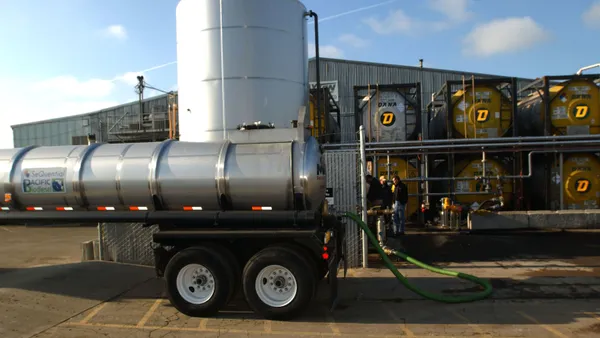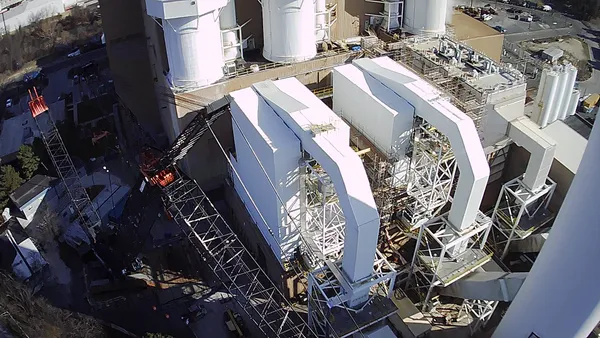Dive Brief:
- Fulcrum BioEnergy has announced plans to construct a $600 million Centerpoint BioFuels Plant in Gary, Indiana. The plant would have capacity to process up to 700,000 tons of MSW per year into 33 million gallons of jet fuel. If construction starts in 2020 as planned, the site could be operational by 2022.
- Plans were formally announced alongside Gov. Eric Holcomb and Mayor Karen Freeman-Wilson on Thursday. Fulcrum will be eligible for a $2.1 million state incentive package once it begins hiring, as reported by the Chicago Tribune, as well unspecified local incentives. The company anticipates 160 permanent jobs.
- As The Times reports, this is far from the first company to make similar local promises. Maya Energy's plans for a $50 million facility in Gary have faced multiple regulatory setbacks. Powers Energy of America's own plans for a waste-to-ethanol facility fell apart in 2013.
Dive Insight:
California-based Fulcrum BioEnergy has generated plenty of buzz for its proprietary process that can turn waste into jet fuel. The process is said to reduce greenhouse gas emissions by as much as 80% compared to traditional fossil fuels. Like any new technology, the commercial viability of these plans won't be fully known until a plant is open and working over an extended period of time.
The company's Sierra BioFuels Plant, located outside of Reno, Nevada, will be closely watched to see if the technology can deliver. Said to be the first of its kind in the nation, the facility is currently projected to open in 2020. The Sierra plant will have annual capacity for approximately 175,000 tons of MSW, with an output of 10.5 million gallons of fuel.
BP has signed a 10-year off-take agreement with Fulcrum for that fuel, including distribution through its partner Air BP, and agreed to invest $30 million. Other major backers that have signed on to Fulcrum's plans via investments or fuel off-take agreements include United Airlines (headquartered in Chicago, near the new project), Cathay Pacific and World Fuels Services. The company has also received significant grant funding from the U.S. Department of Defense as well as a loan guarantee from the U.S. Department of Agriculture.
Notably, Waste Management agreed to invest up to $70 million back in 2011 and provide feedstock to the Nevada facility. Waste Connections has also entered into a development agreement that could include providing feedstock in 15 areas across North America. Fulcrum previously expressed interest in eventually expanding to Houston, Seattle and San Francisco, among other areas.
The extent of collaboration between these companies and Fulcrum may depend in part on how vertically integrated they are with disposal assets in markets where the technology eventually becomes operational. A number of other companies are also pursuing a range of alternative technologies — including BioHiTech Global, Enerkem and Fiberight, among others — but competing with lower-cost landfills is an ever-present factor.















